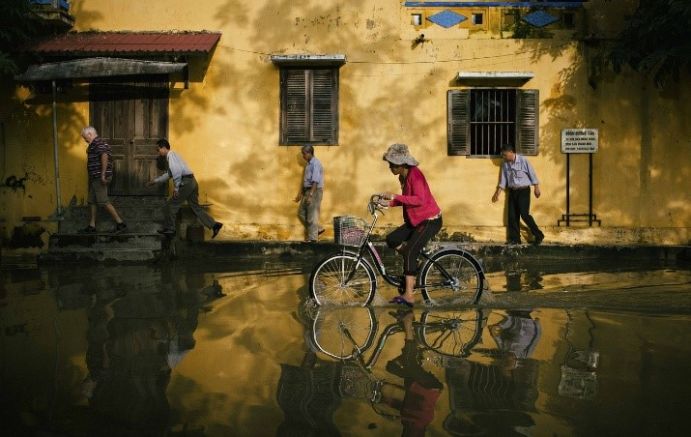HI-CliF - Modelling the impact of floods on human health
The junior research group HI-CliF investigates the impact of flood events on human health in the context of climate change and growing urbanisation and derives sustainable climate adaptation pathways.
Due to climate change, more people worldwide are affected by floods than by any other natural hazard. Negative impacts on the physical and mental health and psychosocial well-being of the population are expected to increase due to climate change and rapid urbanisation. Although infrastructural improvements and an increase in the level of structural flood protection are already being implemented, human health and well-being are less considered in risk assessments. They are difficult to quantify. Currently, there is still a lack of understanding of the flood-human-health system, which is, however, a prerequisite for the development of socially acceptable adaptation pathways and for raising awareness and strengthening the population and its resilience.
The junior research group HI-CliF (Understanding and modelling the Health Impacts under future Climate and socio-economic drivers of the Flood Risk System) is developing a model to quantify flood risk. The focus is on the effects on health and well-being. The aim of HI-CliF is to improve the understanding of the flood-human-health system. Adaptation pathways will be developed to reduce flood risk to human health by taking into account future climatic and socio-economic changes.
The project is based on several case studies from Germany and Vietnam, for example the 2013 and 2021 Elbe and Ahr Valley floods, and the 2019 Saigon flood, which will be used to assess the effectiveness of potential adaptation strategies. Improved understanding and modelling capabilities of the flood-human-health system will help to reduce future risks and their magnitude, thereby contributing to the achievement of the United Nations' Sustainable Development Goals.
The BMFTR is funding Hi-CliF with 2.1 million euros from 2023 to 2028.
Project lead:
Dr. Nivedita Sairam
Helmholtz-Zentrum Potsdam, Deutsches GeoForschungsZentrum GFZ
Telegrafenberg
14407 Potsdam
Tel: +49 331 288-0
E-Mail: presse@gfz-potsdam.de
Last updated on




